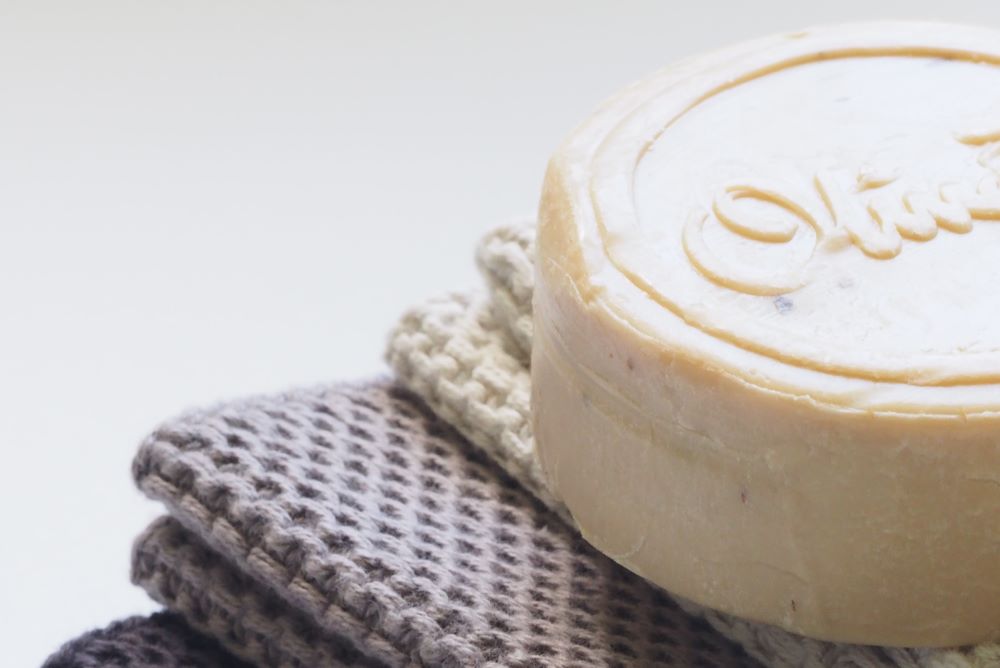Does Olive Oil Soap Actually Work?
Olive oil soap, also known as Castile soap, is primarily made from olive oil, lye (sodium hydroxide), and water. The key to its efficacy lies in the high concentration of olive oil. Olive oil is rich in essential fatty acids, including oleic acid, which possesses several benefits for the skin.
The Benefits of Olive Oil for Skin
Olive oil is renowned for its potential skin-enhancing properties:
- Moisturization: Olive oil is an excellent moisturizer, as it contains healthy fats that can penetrate the skin’s outermost layer, providing hydration and preventing moisture loss.
- Antioxidant Properties: Olive oil is loaded with antioxidants like vitamin E and polyphenols, which help combat free radicals and reduce the signs of premature aging.
- Anti-Inflammatory Effects: Oleic acid, a major component of olive oil, has anti-inflammatory properties that can soothe irritated skin and reduce redness.
- Antibacterial and Antifungal: Olive oil has natural antibacterial and antifungal properties that can help address skin issues like acne and fungal infections.
- Skin Repair: The antioxidants in olive oil promote the repair of damaged skin, making it beneficial for conditions like eczema and psoriasis.
So, with all these skin-friendly properties, it’s not surprising that olive oil is a popular ingredient in skincare products, including soap.

Olive Oil Skincare Benefits
The Science Behind Olive Oil Soap
Now that we understand the benefits of olive oil for the skin, let’s delve into the science of olive oil soap to answer the question of whether it actually works.
- Cleansing
Olive oil soap is an effective cleanser. The combination of olive oil and lye creates a soap that can break down oils, dirt, and impurities on the skin. The soap’s gentle nature makes it suitable for all skin types, including sensitive skin.
- Moisturization
One of the key advantages of olive oil soap is its moisturizing properties. It doesn’t strip the skin of its natural oils like some commercial soaps can. Instead, it helps maintain the skin’s natural moisture balance, leaving it feeling soft and supple.
- Anti-Inflammatory and Antioxidant Effects
The presence of olive oil in the soap can help reduce inflammation and protect the skin from oxidative stress. This can be particularly beneficial for those with skin conditions like eczema or for anyone looking to maintain healthy, radiant skin.
- Antibacterial and Antifungal Properties
Olive oil’s natural antibacterial and antifungal properties can make olive oil soap an excellent choice for individuals dealing with acne or skin infections. It can help keep bacteria and fungi in check while promoting the healing of the skin.
- Skin Repair and Regeneration
The antioxidants in olive oil support the repair and regeneration of skin cells. This can be especially helpful for individuals with damaged or aging skin, as it aids in the reduction of fine lines and wrinkles.
Can You Melt Soap and Add Essential Oils?
Olive Oil Soap vs. Commercial Soaps
To determine whether olive oil soap actually works, it’s essential to compare it to commercial soaps. Many commercial soaps contain harsh chemicals and detergents that can strip the skin of its natural oils, leaving it dry and potentially irritated. These soaps may also contain fragrances and preservatives that can be irritating for sensitive skin.
In contrast, olive oil soap is a more natural and gentle alternative. It is often free from artificial fragrances and additives, making it a safer option for those with sensitive or allergy-prone skin. The moisturizing and nourishing properties of olive oil make it an excellent choice for anyone looking to maintain healthy skin.
How to Choose the Right Olive Oil Soap
If you’re interested in trying olive oil soap, it’s crucial to select a high-quality product. Here are some tips for choosing the right one:
- Ingredient List: Check the ingredients to ensure that olive oil is listed as one of the primary components. Avoid soaps that contain a minimal amount of olive oil or many synthetic additives.
- Fragrance: If you have sensitive skin, opt for unscented or lightly fragranced olive oil soaps to minimize the risk of irritation.
- Production Process: Look for olive oil soaps made using traditional methods such as cold-process or hot-process soap making. These methods retain more of the beneficial properties of the olive oil.
- Skin Type: Consider your skin type and any specific skin concerns when choosing an olive oil soap. Some formulations may be more suitable for dry skin, while others are designed for acne-prone or sensitive skin.

Olive oil soap, with its rich history and potential skin benefits, is more than just a beauty fad. The combination of olive oil and lye creates a gentle yet effective cleanser that provides moisturization, anti-inflammatory and antioxidant effects, and natural antibacterial and antifungal properties. Unlike some commercial soaps that may be harsh and laden with artificial ingredients, olive oil soap offers a more natural and skin-friendly option.
Make Your Own Homemade Natural Soap With Fig & Leaves
While olive oil soap may not be a one-size-fits-all solution for everyone, it is a promising choice for those looking to improve their skin health naturally. When choosing an olive oil soap, consider the ingredients, fragrance, production process, and your specific skin type and concerns. With the right product, you can experience the potential benefits of olive oil for your skin, leading to healthier, more radiant skin.
In summary, the answer to whether olive oil soap actually works is a resounding “yes” provided you choose a high-quality product that aligns with your skin’s needs.
